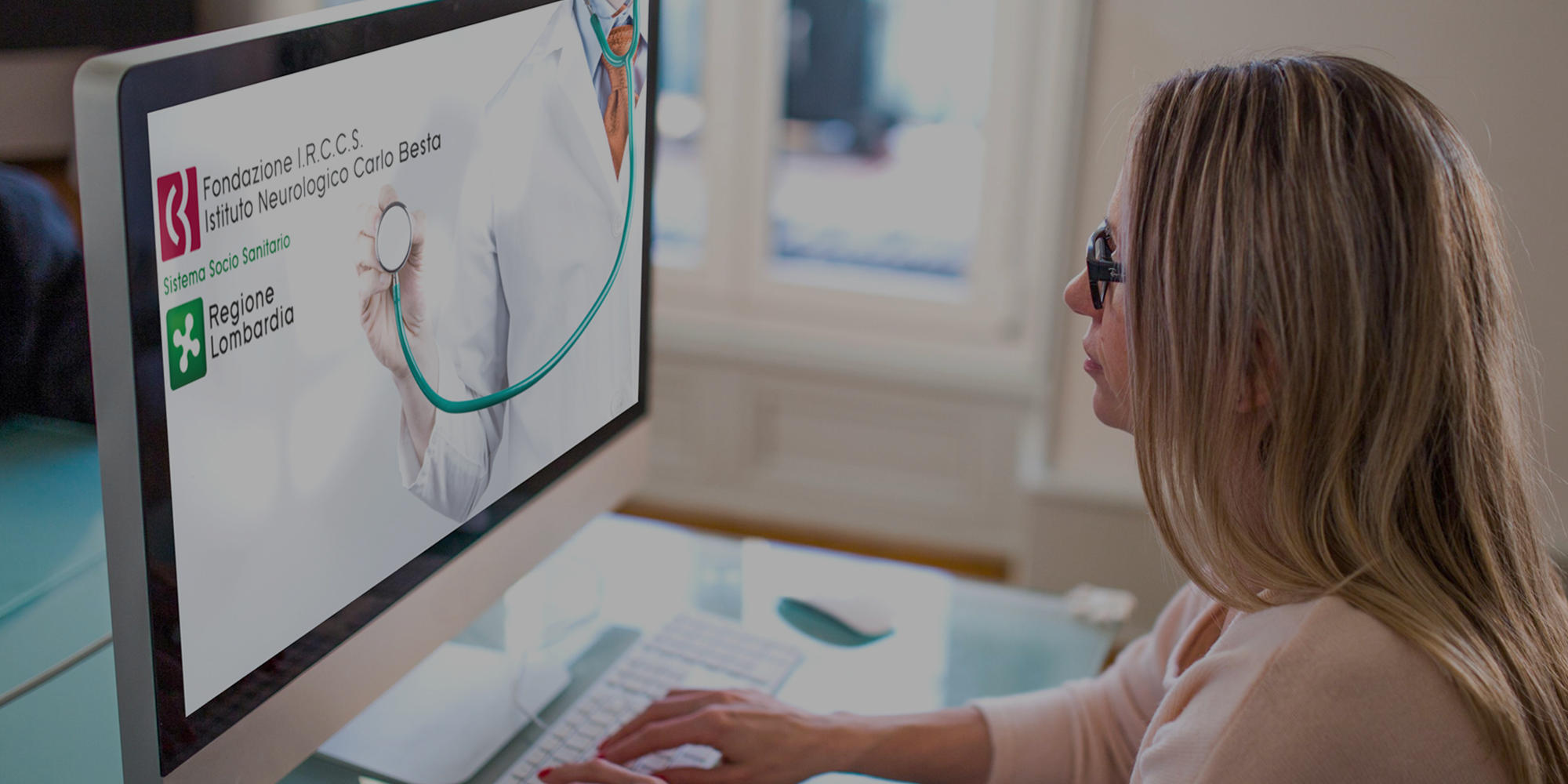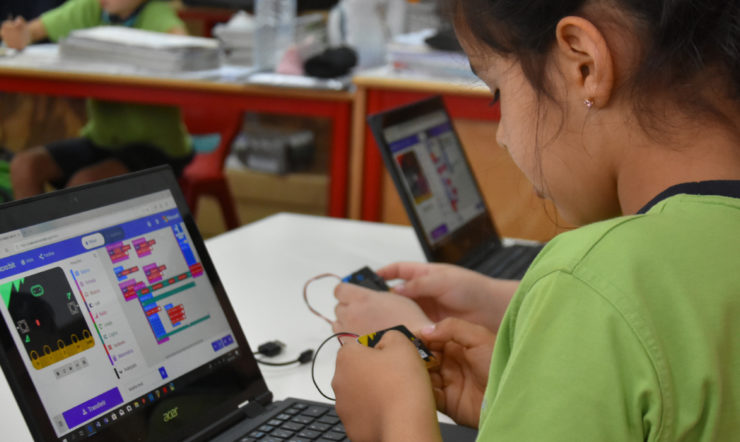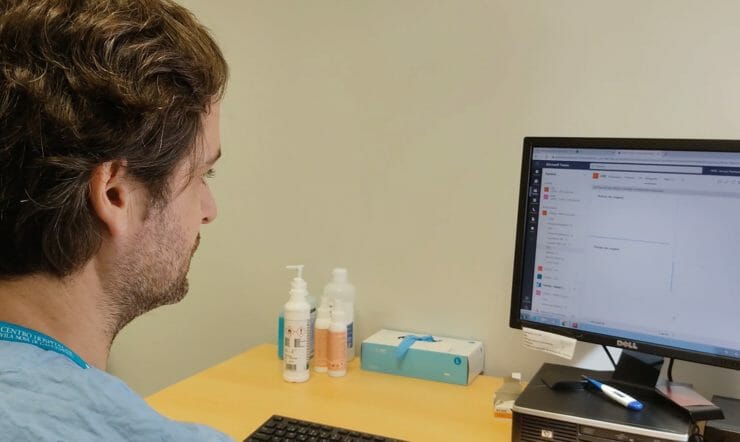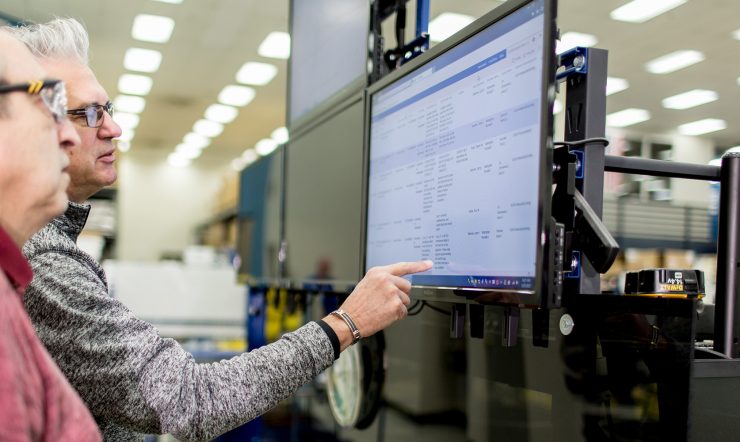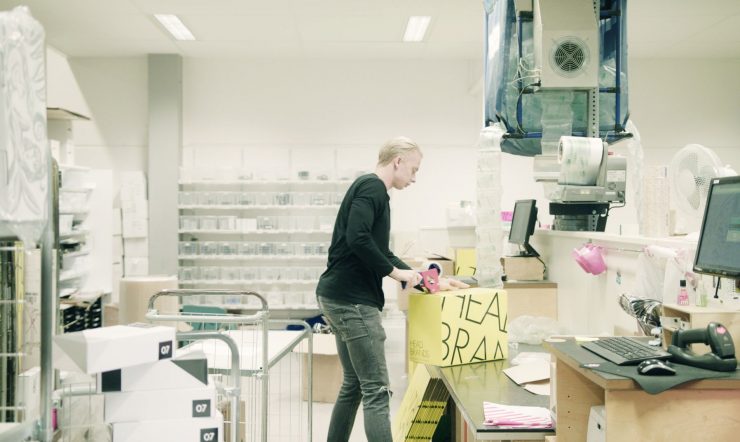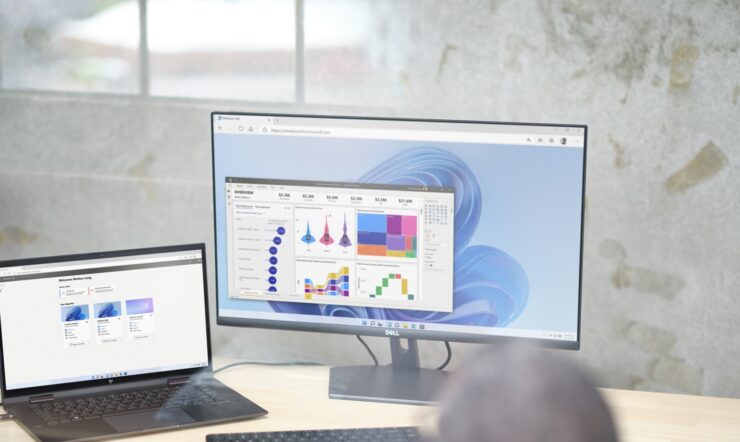“Telehealth was a technology we’d been planning to implement for a couple of years. But then almost overnight everything changed – it became a must-have platform the hospital needed today.”
Francesca De Giorgi, CIO of Italian research hospital IRCCS Carlo Besta, reflects on the recent challenges her team faced when social distancing measures imposed by the Italian government sparked an immediate need for digital transformation.
“Many of our patients have chronic conditions that require frequent check-ins with our clinicians,” explains Francesca. “But the lockdown restricted their ability to travel, so suddenly our clinicians were receiving unregulated phone calls and emails from worried patients.”
Francesca and her team had to move fast to implement a virtual consultation system to help bridge the gap and ensure that patients with chronic neurological diseases could still follow up with their clinicians in a private and secure way, without leaving their homes – all in a matter of weeks.
“We started implementing a new solution with two guiding principles: it had to be simple, and it had to be fast,” she recalls.
“That’s how the telehealth infrastructure we now have in place came about, and we need integrated implementation of technology and processes support tailored interaction.”
Rethinking a traditional approach
Founded in 1918, IRCCS Carlo Besta is a world-leading healthcare provider and research center, providing both high-quality patient care and advanced medical research for neurological diseases and conditions such as Alzheimer’s, Parkinson’s, ALS, Ataxias, Multiple Sclerosis, Neuromuscular disorders, Epilepsy, Cerebrovascular diseases, Pain, Brain Tumors and Rare Neurological Diseases.
Fabrizio Tagliavini, Scientific Director of the Carlo Besta Institutes, based in Milan, explains that its reputation goes far beyond the city’s borders, with 60% of its patients coming from other regions across Italy and even from abroad . For that reason, the hospital had already begun the groundwork for a telehealth infrastructure in 2017, funded by the Italian Ministry of Health, although ongoing discussions around privacy and regulations had prevented the project moving forward.
That is, until restrictions imposed by the government in the middle of February 2020 began limiting how clinicians and patients could interact. Now Francesca and her team needed to kickstart the project fast.
“The pandemic was a sudden push to rethink how we communicate and manage our chronic patients,” says Davide Pareyson, Director of the Functional Department of Neurodegenerative and Neurological Rare Diseases. “Many of our patients already had consultations in place for March, April and May,” he adds. “So, we had an urgent need to guarantee a continuity of care for these patients.”
We needed a new solution that would allow patient interaction to continue, without compromising their healthcare.
“That solution was a Microsoft Teams collaboration suite.”
Embracing a digital solution
With over 100 different outpatient clinics for a variety of neurological disorders and no existing telehealth infrastructure in place, four departments were selected to pilot the new system: Parkinson’s Disease, Multiple Sclerosis, Child Neurology and Rare Diseases.
“Clinicians in these areas had showed a lot of interest in telehealth and how it could help them manage and treat patients,” explains Francesca. “It was important they were enthusiastic as we would need their help to quickly stress-test and improve the system.”
Using Microsoft Teams, clinicians in these departments can now offer chronic patients a video consultation to safely continue their treatment plan, with help from support staff to ensure each patient has the technology needed to take part.
“They send patients a checklist through Microsoft Forms before their consultation to help everything run smoothly,” Francesca says. “And with the integrated EMR, their records are attached to the booking and made available to the clinician during the call – helping us guarantee privacy and security.”
The hospital’s booking system was also integrated into Microsoft Teams and Office 365, allowing patients to follow-up their appointments with ease and receive any correspondence electronically. Working with their booking provider, Francesca was also able to develop an API to translate any previous patient records and appointments to Microsoft Bookings.
“It is a complete system that covers each patient’s visit from end-to-end,” says Francesca.
The benefits for patients
For chronic patients, these virtual consultations have helped restore some order, allowing clinicians to regularly monitor how their patients are managing their condition, and even reproducing a large part of the neurological physical examination.
“We can use these consultations to see how their condition has developed, such as asking them to walk on their heels or toes to assess balance and coordination,” says Davide. “And we can still have a discussion at the end about their results, prescriptions and next visit.”
“A lot depends on the patients’ internet connection and the quality of the call,” he adds. “But we’re already seeing lots of benefits to this approach.”
Another of these benefits for patients has been economic, something Francesca would like to see more of as her team continues to develop this solution.
“Before the lockdown, patients could spend over €600 travelling to us for , calculating overall costs of travel for the patient and an accompanying person and the loss of a working day for both of them treatment,” she explains. “If we can get a clearer framework from the ministry on the specific tariffs and regulations, we can help offer patients better access to the healthcare they need.”
And the feedback from patients has been positive. “We have only recently sent feedback questionnaires through Microsoft Forms,” says Davide. “But so far we’re delighted that many patients are very happy and satisfied with this new approach.”
A successful test for the future
For IRCCS Carlo Besta, this has not just been a response to a pandemic, but a roadmap for future clinical research.
“There is no division between our clinical work and research, as both are based around the interactions we have with the patients,” explains Fabrizio. “They are at the center of our activities, which we’re hoping this new system will help us explore more in the future.
“We’re already training many other departments to use the system,” he adds. “And to explore more than just patient examinations. We also want to look at how telehealth solutions can impact rehabilitation and neuropsychological testing, and how we can use this approach to research different disorders and compare clinical scales.”
So while IRCCS Carlo Besta continues its fight to provide vital services to its vulnerable patients, there may be a glimmer of hope that in the future those patients might benefit from an even more efficient and cost-effective, digitally-driven service.
At the same time, we hope that Tele-health will become a routine model and a recognized framework to provide care in the national context.
To learn more about how Teams is transforming the way clinicians and patients can interact and communicate, visit https://www.microsoft.com/en-us/microsoft-365/solutions/health.


